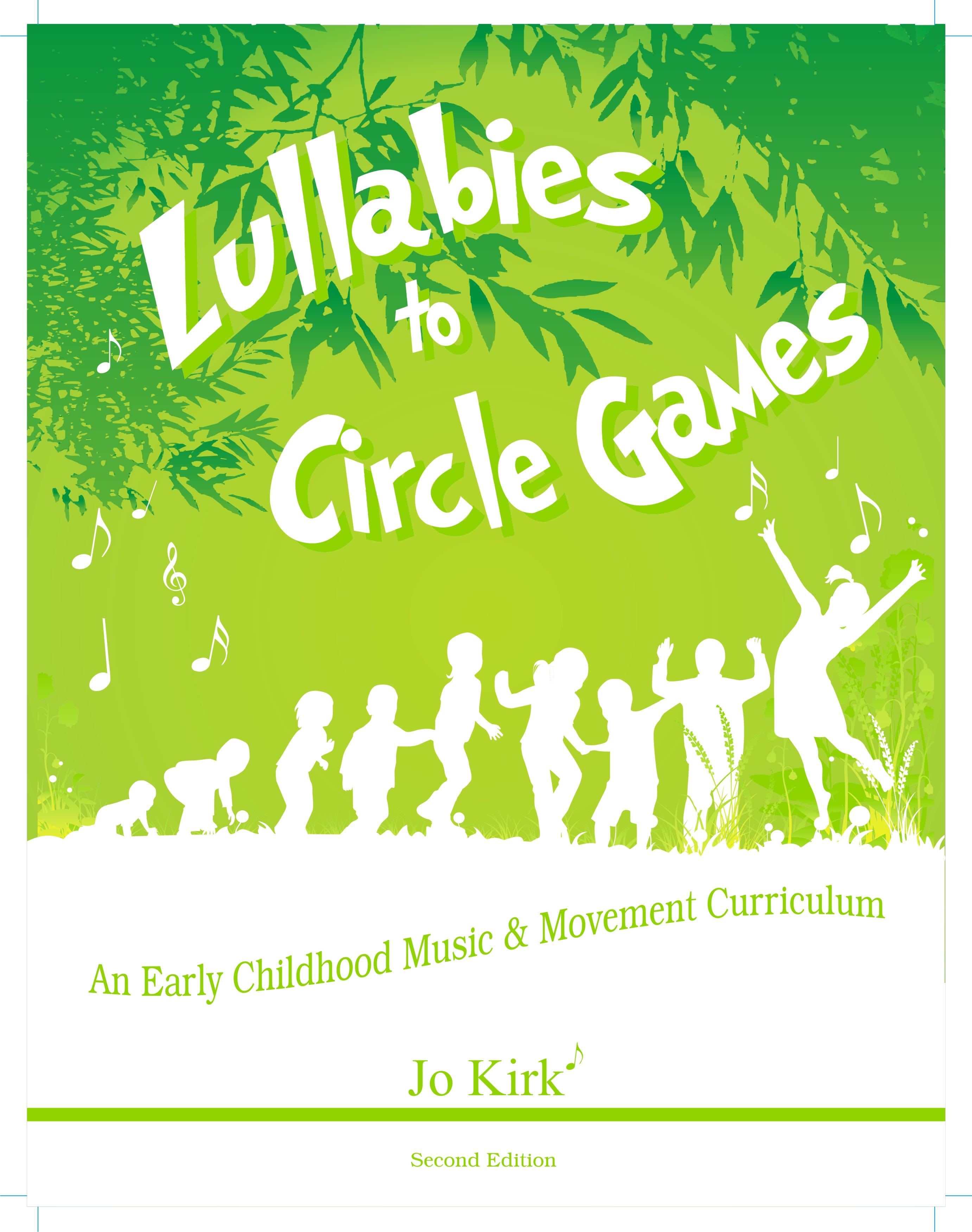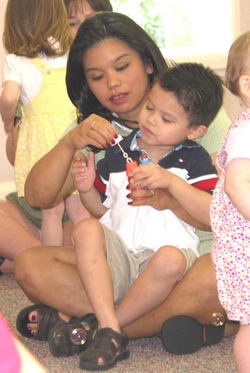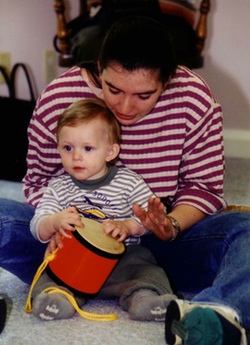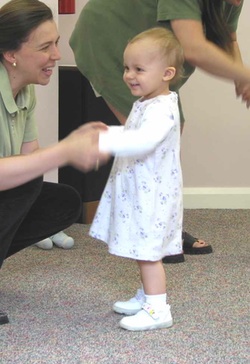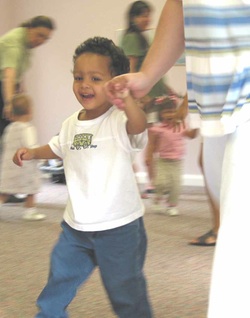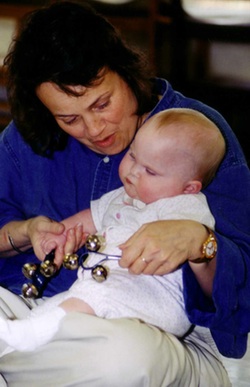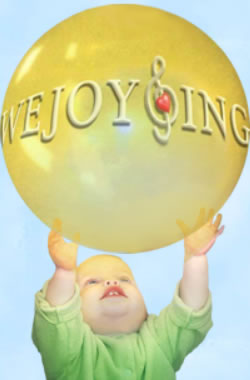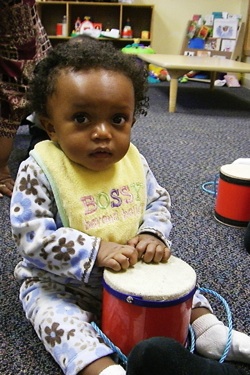Why Early Childhood Music and Movement Classes? Part I: Earleen Coburn
/Why Early Childhood Music and Movement Classes for the Improved Development of the Child
Music helps the child to develop in so many different ways, including mentally, emotionally physically, spiritually, verbally, vocally, socially, and musically It has been shown to help immensely with brain development, gross motor skills (learning balance, and flow of movement), spatial awareness, ear development ((such as auditory discrimination and balance) The ear has been proven to be the most important organ in early childhood development.), developing inner speech and self control, learning to interpret signals and cues, parental bonding, memory and recall, self expression and creativity, and so much more. I am just going to cover a few of these briefly to give you an idea of what I mean.
Brain Development
As I have told many of you, the greatest part of brain development takes place from birth to five years of age. At that time the brain is like wet cement (that’s why it’s a very important time to be learning musical concepts with the mind and body through play). At that time the brain is filled with billions of neurons that need to be “connected in” (through stimuli) or they will be lost. When a child just listens to music he/she uses many different parts of the brain to process that music. All the parts of the brain that are being used at the same time are making connections with each other. “Cells that fire together wire together.” Those connections build circuitry in the brain, which builds capacity in the brain, which can later be used for math, reading, science, sports, music, or whatever. If a child is involved in the music (dancing, singing, playing a rhythm instrument or other instrument), then even more brain development is taking place. When a child is actively participating in music 90% of the brain is being used (and developed). While making music (especially involving the voice), all eight “centers” of the brain work simultaneously. Coordinating one’s voice, body, and/or hands playing a rhythm instrument, with the flow of the music is an amazing mind/body exercise, especially for a young developing brain and nervous system. Some neural pathways are only connected during musical activities.
Music stimulates the brain. A child’s brain is in its developmental stages from birth to age 9. It has been shown that if a child with a developing brain listens to classical music before a test he/she will do better on that test and the brain improvement will be permanent. If an adult listens to classical music just before a test, he/she will also do better on that test, but the improvement will only be temporary.
Statistics indicate that children who have learned to “keep a steady beat” (become “timed”), or “have a good sense of rhythm in their bodies” (by 7 or 8 years old) perform in the higher percentile ranking of their academic and professional peers throughout life. Learning to keep a steady beat – a cadence - successfully has been shone to help children with reading and language skills. That’s because these areas require a good sense of cadence. Every language has it’s own cadence. We do a lot in Musikgarten to help children to develop a good sense of rhythm and timing, especially in our abundant use of rhythm instruments, as well as in the singing, dancing, and drumming. All musical activities, but especially dancing and playing rhythm instruments, help to develop listening skills, and “auditory discrimination” (recognizing different sounds). These are some more necessary tools in developing speech and reading skills. Many pre-reading skills are part of music, like; rhyme, sequencing, patterns, rhythm, and eye-hand coordination, to mention a few. Learning to keep a steady beat has also been found to help ADD and ADHD children learn to focus better, and become more successful in school.
Speech
Children who don’t talk, (have never spoken, or have recently come from another country and don’t know English), who are exposed to musical activities involving language (on a regular basis) begin to say or sing words and develop a vocabulary. This has been shown in research done by the University of Miami, and by High Scope Educational Research Foundation in Michigan. Putting the words with the music seems to help them to make the connections more easily. Perhaps it is the emotional element of music. Whatever it is, music helps them to speak and learn words and language better.
Social
Children in daycare and preschool setting have become much more friendly and sociable when musical activities have become part of the daily routine, as opposed to schools where it was not. This was also discovered by the University of Miami research.
Movement
Music and movement together help children to develop gross motor skills, coordination and a good sense of balance and spatial awareness. Movement helps learning to become more concrete, when added to any learning activity. We retain 50% more when a movement component is added to the learning sequence.
Inner Speech and Self-control.
Young children have a very hard time controlling themselves (telling their bodies what to do, when and how to stop etc.). Our bodies are very tuned into the flow, beat and nuances of music. It can make us feel happy or sad, active or relaxed. If we’re moving with the music and it stops we have a much greater impulse to stop than if there were no music. Musical activities help children to learn to tell their bodies what to do, when to stop, when to go, when to clean up. Transitioning from one activity to another is often difficult for children. When a song is sung regularly to cue the change of activity, the transition goes much more smoothly. Music helps them to develop inner speech, controlling their bodies and making them fit with the musical suggestions and flow.
A Refuge
In our crazy society where everyone is rushing around with their busy schedules, children as well as adults develop a “fight or flight” mentality, and often feel like a cornered animal where nothing is sure, secure, solid or easy. It just all seems scrambled. This is a huge obstacle to learning, and in many cases shuts down learning capabilities. Music and musical activities help children to calm and organize themselves. Different from all the draining things around us, music energizes us. It sensitizes the brain to learn, and it helps us cope with the crazy world around us. Good music, and being actively involved in it, is a very healthy thing for us, on every level; mentally, emotionally, physically and spiritually.
(Dee Joy Coulter, Ed.D., a neuroscience educator and researcher from Colorado recently gave this information in a talk at the University of Delaware.)

